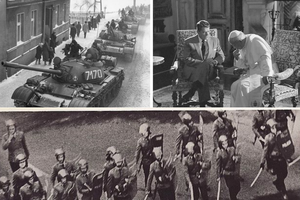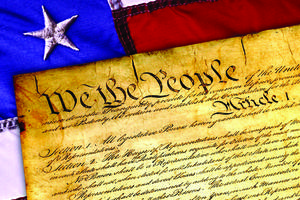Death Comes Quietly for a Pius XII Persecutor
COMMENTARY: No doubt, one can hope for the Lord’s mercy for Rolf Hochhuth, and for Pius XII’s prayers.

The playwright who persecuted Pope Pius XII, who bears much responsibility for perpetuating the scandalous image of Pius as “Hitler’s Pope,” died in Germany on May 13. Rolf Hochhuth passed quietly, with even Catholic sources largely unaware or silent on his passing. I learned about it only from a friend, who emailed me: “I trust you saw that he had passed away. May the Lord be as merciful to him as we hope He will be to the rest of us. I trust that would be Pius XII’s prayer for him.”
No doubt, one can hope for the Lord’s mercy for Hochhuth, and for Pius XII’s prayers. The Lord knows that Hochhuth was anything but merciful to Pius XII.
On Feb. 23, 1963, a play opened, titled The Deputy, a Christian Tragedy, by Hochhuth, a left-wing German playwright. It initiated a long disinformation campaign aimed at the saintly reputation of the deceased pontiff, viciously framing the pope as Hitler’s lackey, his enabler and collaborator. Pius XII was portrayed as indifferent to the plight of Jews under Hitler and perhaps complicit in the Holocaust. The Pontiff stood posthumously indicted. The myth of “Hitler’s Pope” would take flight, with Hochhuth greasing the skids. The play was a terrible injustice.
This libelous line against the late pope was furthered by various Western liberals and Church despisers and dissenters who accepted it on face value. Many who picked it up were simply ill-informed, though others were inclined to want to believe the worst about the Pope, the papacy and the Catholic Church. In 1999, author John Cornwell let loose with the enormously damaging Hitler’s Pope, published by Viking Press.
In truth, and quite importantly, the ball began rolling before Hochhuth, who was shoveling ideological bilge already dished by the Kremlin. In their groundbreaking book on Soviet disinformation, former Soviet Bloc defector Ion Mihai Pacepa and Pius XII biographer Ron Rychlak followed the fingerprints with a due diligence that others never bothered with. They traced the attack against Pius XII to a June 3, 1945, Radio Moscow broadcast that first leveled the defamatory charges.
The Soviets had fully understood that Pius XII was a mortal threat to their ideology, despising communism as much as Nazism. Post-WWII, communists were hellbent on an unholy crusade to destroy the Pope, to scandalize his flock, and to shamelessly foment division between Catholics and the Jewish people.
Moscow Radio accused Pius XII’s Vatican of a “vigilant policy of protection of Hitler and Mussolini.” The broadcast stated: “No atrocity carried out by the Hitlerites stirred the contempt and indignation of the Vatican.” As if this were not quite strong enough, the Kremlin ratcheted up the vitriol with lies heaped upon lies: “The latter was silent when the German death machines were active, when the chimneys of the crematorium ovens spewed smoke, when grenades and projectiles were thrown against the peaceful population of London, when the Hitlerite doctrine of elimination and extermination of nations and peoples was being transformed into a harsh reality.”
It was classic Soviet incendiary rhetoric, fanned to ludicrous lengths, marshalled in service of taking down a genuinely holy man who had done all he could (and then some) to help Jews during the war. The ludicrousness of these vicious thrusts by Stalin’s smear machine were palpably obvious. The New York Times even reported on it, with articles such as a Jan. 19, 1947, piece titled, “Russian Says Pope Shields Fascists.” The Times took note of the “attack on the Vatican” being ramped up by the Kremlin’s propaganda machine.
Soviet officials were particularly incensed by Pius XII’s encyclical, Orientales Omnes Ecclesia, addressed to the Ukrainian Catholic faithful. Stalin responded by immediately arresting six Ukrainian bishops who were promptly framed as “Nazi collaborators” and then murdered.
To Stalin’s great frustration, he and his goons could not storm the Vatican and hang the pope from the ceiling of St. Peter’s Basilica. So, they would lynch the pontiff in absentia with whatever defamatory means at their disposal. Hochhuth’s play in February 1963 was effectively a stage debut of the bitter fruits of their prior methods. As Pacepa and Rychlak noted to me, “Moscow was at war with Pius XII long before Hochhuth’s play The Deputy had seen the light at the Freie Volksbühne (Free People’s Theatre), a Communist theater in Berlin, under the direction of life-long KGB agent Erwin Piscator.” When Cornwell advanced the line of “Hitler’s Pope” in 1999, he was resurrecting an old Stalinist-KGB canard that was over a half-century old.
Today, the many works revealing what a terrible smear this was, and that, to the contrary, show that Pius XII was a friend and defender of Jews, continue to mount. They include Rabbi David Dalin, The Myth of Hitler’s Pope: How Pope Pius XII Rescued Jews from the Nazis; Ronald Rychlak’s Hitler, the War, and the Pope and Righteous Gentiles: How Pius XII and the Catholic Church Saved a Half Million Jews from the Nazis; Gordon Thomas, The Pope’s Jews: The Vatican’s Secret Plan to Save Jews from the Nazis; Dan Kurzman’s A Special Mission (on Hitler’s plot to seize the Vatican and kidnap Pius XII); Mark Reibling’s Church of Spies: The Pope’s Secret War Against Hitler; Sister Margherita Marchione’s numerous writings; and still others.
Some, such as the Register’s Edward Pentin, have written not only of Pius’ attempts to stop Hitler — including a literal attempt at a long-distance exorcism of the German dictator — but of the Nazis’ plot to actually kidnap the Pontiff, surely an odd thing to do if Pius were the Führer’s handy helper. Pacepa has gone so far as to consider whether Stalin might have had a plan to assassinate Pius XII.
In The Myth of Hitler’s Pope, Rabbi Dalin notes that “Pius XII was a persistent, vocal critic of Hitler and Nazism.” Pius’ first encyclical, Summi Pontificatus (in Dalin’s accurate description) “begged for peace, expressly rejected Nazism, and expressly mentioned Jews — all of which his modern critics have missed.” He quotes Heinrich Mueller, the head of the Gestapo, who angrily protested, “This encyclical is directed exclusively against Germany, both in ideology and in regard to the German-Polish dispute. How dangerous it is.”
Dalin notes that from 1933-45, throughout Hitler’s reign, Pius XII was “almost universally recognized, especially by the Nazis themselves, as an unrelenting opponent of the Nazi regime.” He states categorically that Jews of Pius XII’s day would be saddened at how he is seen today. “For Jewish leaders of a previous generation,” Dalin writes, “the idea that Pope Pius XII could be smeared as ‘Hitler’s pope’ would have been shocking.” Dalin lists some of those who would be aghast: Chaim Weizmann, Israel’s first president; Israeli prime ministers Golda Meir and Moshe Sharett; Rabbi Isaac Herzog, the chief rabbi of Israel; and (among others) Albert Einstein.
Dalin cites a figure by renowned Israeli diplomat and historian Pinchas Lapide, who, in the definitive work on the subject (his 1967 book, Three Popes and the Jews), contended that Pius saved “at least 700,000, but probably as many as 860,000 Jews from certain death at Nazi hands.” That’s an extraordinary number. There were 10-12 million Jews on the planet, with Hitler murdering 6 million.
Dalin is overwhelmed by this. He notes that Israel’s Holocaust Memorial Yad Vashem honors many “righteous gentiles,” and thus argues that Pius XII should be added to this memorial. Dalin notes that it is “especially ironic” that Pope Pius XII is called “Hitler’s Pope” when the Nazis called him “Jew-loving.”
Another rabbi, Daniel Lapin, has excoriated these “assailants” and their “rashness and folly attempt posthumously to assassinate Pope Pius XII.” Lapin says that the necessary restoration of this “good man’s good name is a mitzvah — a Jewish good deed.”
Tragically, Rolf Hochhuth did a terrible misdeed. He besmirched a good man’s good name, leaving a necessary restoration to others.
Hochhuth died on May 13 — the feast day of Our Lady of Fatima. How ironic that was, if not providential. Our Lady of Fatima had warned of persecutions and errors by communists toward the Catholic Church and its pope. “The Holy Father,” she foretold, “would have much to suffer.” That was certainly true of Pius XII. His persecution at the hands of communists actually began when he was a bishop in Germany, when communists had tried to kill the young priest (Eugenio Pacelli), who was then apostolic nuncio.
And speaking of irony, or, flatly, the hand of Providence, Pacelli had been ordained a bishop on May 13, 1917, the exact date that Our Lady first appeared in Fatima. He was ordained not far from where Hochhuth died — on May 13.
Returning to my friend’s statement at the start of this article, perhaps we could trust that Pius XII was praying for Rolf on May 13, a day that meant so much to the Pope and his Church.
Paul Kengor, Ph.D., is professor of political science at Grove City College in Pennsylvania.
His books include A Pope and a President, The Divine Plan and The Politically Incorrect Guide to Communism.
- Keywords:
- hitlers pope
- paul kengor
- pope pius xii
- rolf hochhuth

















